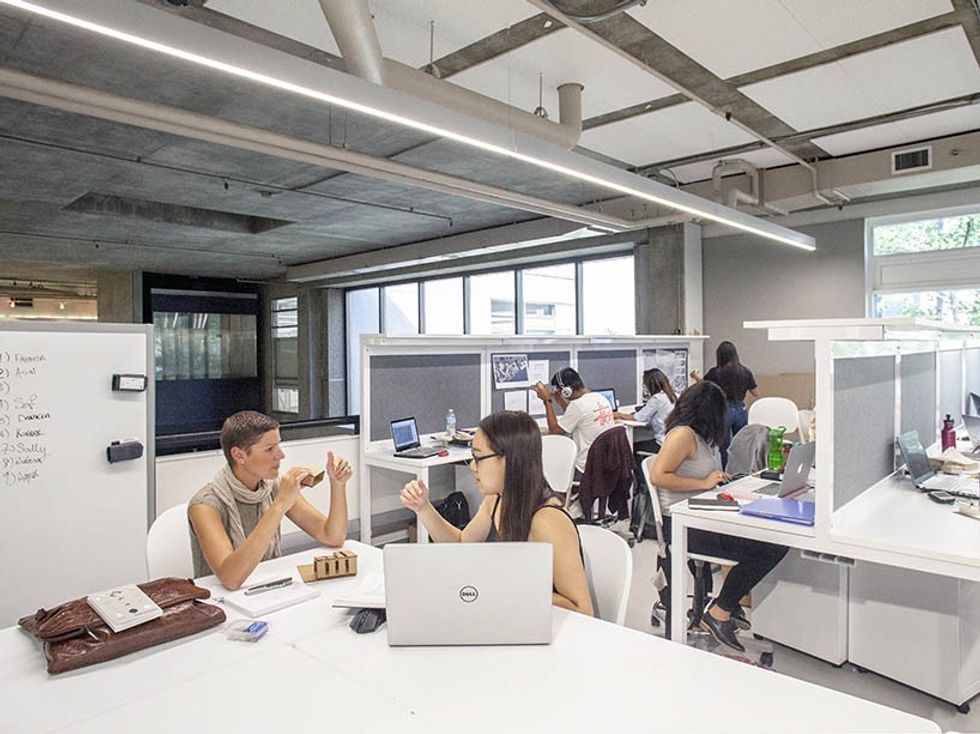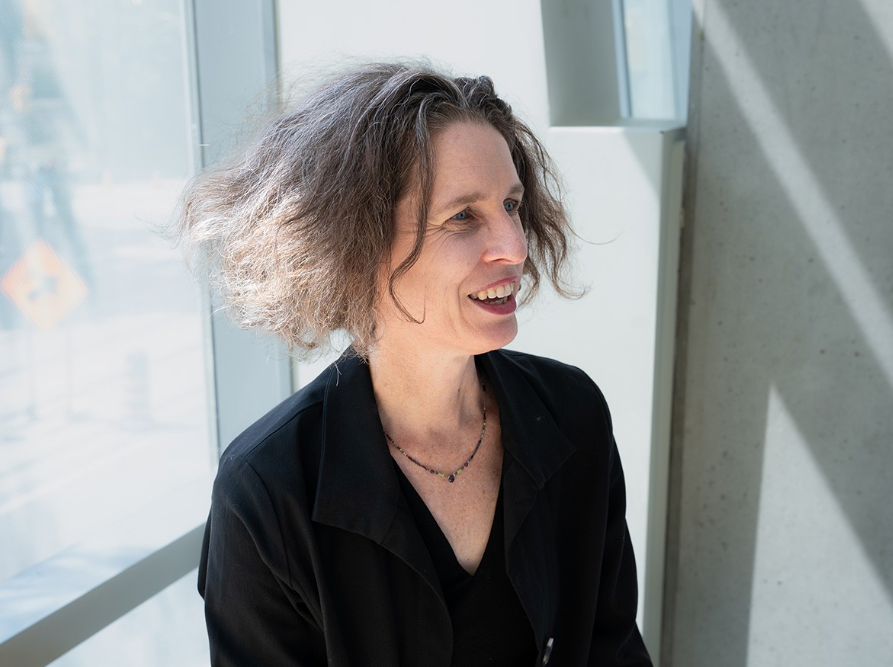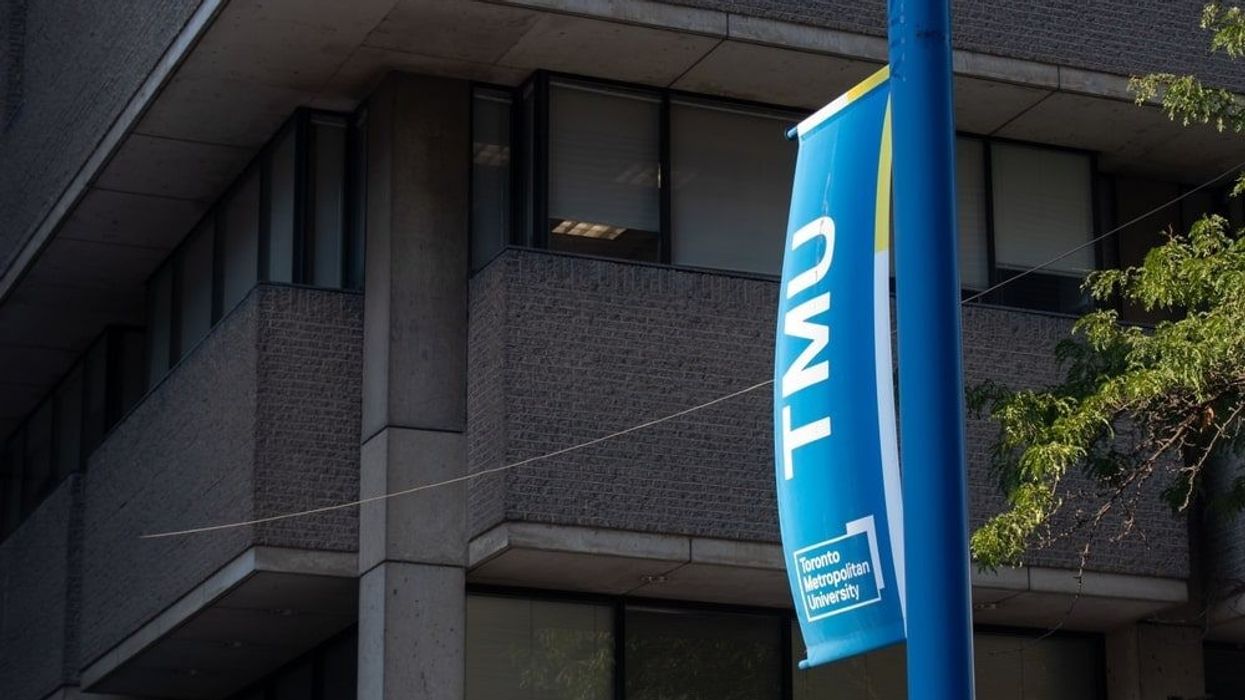Calling all aspiring architects! Toronto Metropolitan University (TMU) is taking what it calls a “revolutionary” approach to architecture, announcing a new, forward-thinking PhD program at its Department of Architectural Science.
What makes it so special, according to the downtown Toronto university, is that it’s the only PhD in Canada that truly centres the design process as a form of research, joining other institutions like Harvard University and University College London. This means that research happens through design as a multifaceted mode of discovery; the architectural design processes will serve as both the subject and method of research itself. So, as opposed to a textbook style of learning, the City of Toronto will essentially act as a laboratory for students, with the program designed around active scholarship and public engagement.
“The program engages questions of how architectural knowledge is produced and mobilized for positive societal change,” says Professor Lisa Landrum, chair of TMU’s Department of Architectural Science. “It treats design as not just a task of problem-solving, but an open-ended process of discovery – finding out what is possible, desirable, and best. Architects can’t just apply received wisdom to produce a good result, or problem-solve through data analysis.”
As a creative and collaborative process, Landrum says architectural design is not a straight-forward, linear procedure. “We’re always dealing with particular situations and dynamically complex circumstances involving cultural diversity, local history, technological change, ecological precarity, economic limits, socio-political challenges, and happy accidents,” says Landrum. This is especially true in a vibrant and multifaceted city like Toronto.
“Researching how design navigates this complex diversity is central to the program,” says Landrum. “The program gives students space to ask open questions like, ‘How can we invent new ways of visualizing and communicating complexity to help communities discover the best design strategies and solutions?,’ ‘How can architecture be reimagined as an embodiment of cultural knowledge?,’ and, ‘How can we build thriving communities, while advancing our understanding about what helps people thrive?’”

When it comes to Toronto, how the program will utilize the city, says Landrum, will depend on the unique questions and curiosities that students bring to the program, and on opportunities that may arise.
“Essentially, we aim to use the city as our classroom, using public forums and interactive exhibitions as devices of research experimentation and dissemination,” says Landrum. “Some research happens in isolated labs and specialized archives. Architecture operates in the public realm. TMU is one of Canada’s most urban-integrated campuses. We want to use that to our advantage. We aim to make architectural research accessible and meaningful to everyone by engaging people in the research. Hopefully, this will empower people to participate in the development and design processes affecting their own communities.”
PhD students will investigate a wide range of topics and techniques, from drawing and modeling, to interactive installations and prototypes, to embodied and enactive performances.

Shaking up Toronto’s architecture and design industry, the program will generate new forms of collaboration between architectural researchers, designers and diverse partners in industry, arts, government, and community, says Landrum. “Outcomes of this program will not only sit on library shelves as eloquent theses, but be mobilized through public exhibitions, community events, open displays, and civic programming,” says Landrum. “We will engage architecture as a form of agency and advocacy for public good and cultural meaning.”
The ideal candidates for the program are curious, experimental individuals who are committed to rigorous inquiry and transforming the architectural profession for the good, said Landrum. "This doctoral program will become an invigorating force for the discipline and a forum for reimagining what's possible in architecture."
The Department of Architectural Science will welcome its inaugural cohort of PhD students in fall 2024. In the meantime, TMU's programming isn't the only thing expanding; the school is currently working on plans to add a glossy new Student Wellbeing Centre to its real estate and purchased two downtown Toronto sites for campus expansion last June.





















